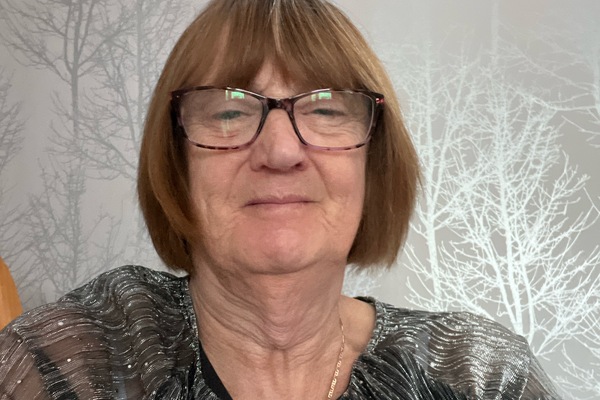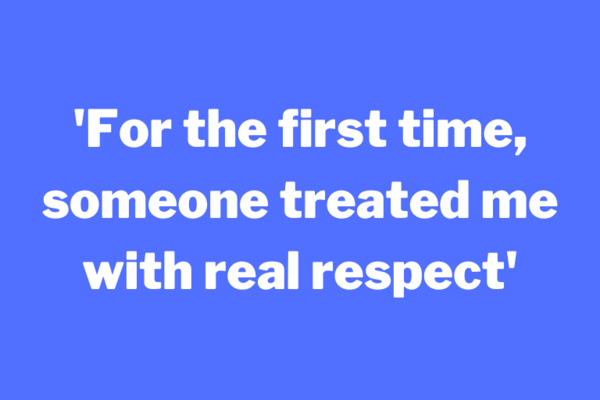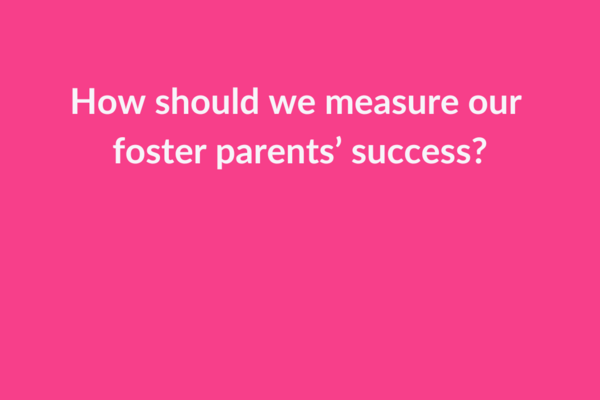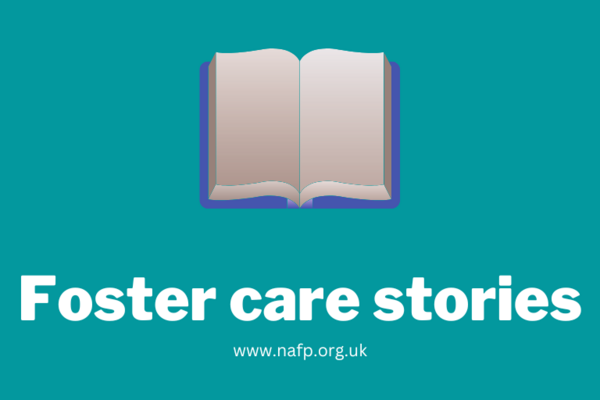Wilma Johnston is recently enjoying retirement after serving for four decades as a foster carer. She shares some brilliant advice and wholesome success stories with NAFP, as well as what motivated her to keep going for so long.
You fostered for an incredible 40 years, but let’s go back to the start. Why did you decide to get into it?
It was something I’ve always wanted to do. When I got married my ex-husband and I decided that if we couldn’t have children, we'd foster or adopt. He had been fostered when he was young so it was in his blood. As it happened, we had two children but we wanted more so we decided to foster. We were living in Fife at the time and did four years with the local authority. When we moved, we saw adverts for Barnardo’s and went along to the meetings and were really happy there. Our marriage didn't last, and since 1992 I have continued to foster by myself as a single carer.
The first young person we fostered with Barnardo’s had been put up for adoption when he was five, but was put back into the system four years later because they didn't want him anymore. He came to live with us and he had a lot of issues, as all children do, but we decided we wanted to adopt him. He was 11 when the adoption came through and now that young person is 50. I’ve celebrated every big event, anniversary and milestone with him. Earlier this year, my daughter and I travelled to Cork to celebrate his 50th birthday.
I was a specialist carer for kids with severe learning disabilities and I really enjoyed that. We had a girl, who again, will be 50 this year. She came to us when she was 14 and was autistic, epileptic and lacked basic communication skills. I was told that they didn’t think she would live in a normal family. I just laughed and said that we were not normal so she would be fine – and she was! She stayed until she was 32. We went on to be her community carer, but I was still working with Barnardo’s and getting other kids at the same time. She now phones me every Monday and I meet her once every four or five weeks for a coffee. She also comes for Mother's Day, Christmas dinner and we meet up for birthdays.
After all the long-term placements I started doing short term, which was anywhere from one night to six weeks - although some of these turned into six months. I had a guy a couple of years ago from the traveller community. His brother lived in Belfast and he eventually went over there to join him, but the process was slow because the brother had only just turned 18. From February to May, this boy had five different foster carers and struggled to get on with them but he said he knew he could stay with me in the first five minutes of getting here. I had never dealt with anybody from the traveller community before so I learned a lot. He was absolutely brilliant: he made dinner, we went out shopping, to the cinema and got out and about. I discovered that it’s important for the traveller community to look after their elders: he kept telling me that I shouldn’t be working but I loved my job.
It must be very rewarding staying in touch with children after they left. How important do you think it is for them to continue to have those relationships when they move away from the placement?
It can be a very important relationship, but it's always up to the young person. If the young person doesn't want to get back in touch with you then you mustn’t force the issue. Sometimes I'll get the odd phone call and then it withers away after a while. When they do stay in touch it's very rewarding because you can see how well they've come on.
40 years is a very long time in any job, never mind fostering! How did you stay motivated to keep going for that long?
It was because I loved it. Of course, there were some days where you think, why am I doing this? Then you'd look at the young person and think, this is why. I'm making a difference. I'm working with them, I'm helping them, I'm bringing them a lot of love and they're bringing me a lot of love. We're working through all the baggage that they've brought with them. Many people talk about foster children fitting in, but the reality is that they don’t fit in in the beginning. They walk into a room filled with people who know each other and they’re on the outside looking in, so it’s important to include them through it all. If I turned the clock back, I would do exactly the same again because it has always been my goal to help people.
You’ve had a lot of success, but it would be good to also hear about some of the challenges you've faced.
I had a 9-year-old boy who ended up staying with me for nine years. He would suddenly get very angry and his behaviour was very unpredictable. It made you wonder what you said or did to trigger it. When I asked him to go to his room to calm down before we could talk about it, he used to sit on the stairs and watch me. It turned out that before he came to me he was locked in his bedroom whenever he had a paddy and I had to reassure him many a time that he wasn’t going to get locked up. Nowadays though, with the internet, you can Google things to learn about different behaviours and solutions.
What advice would you give to other foster carers?
You have to sit down and listen. We don’t always get told the background, but noting everything down and trying to piece together what has happened is important. Every child is different and some are not willing to talk to you. They walk about the house with their earbuds in and grunt, but your own children also go through stages where they don't want to talk to you too so it’s fair enough.
Having boundaries and house rules to follow is important. I don’t smoke and I won’t let anybody do it in my house. But, you also have to give them a bit of leeway. They could be 9-years-old and act as though they are two because they've missed out on stories and playing silly games when they were younger. Many children their age wouldn’t be interested in this, but it’s great if they want it. Sometimes they just want a hug. One thing I would always say is that if they wanted a hug, it was fine but it was always on their terms. I'm not going to go in there and grab them because you don’t know their history and have to be very careful that you don't overstep the mark.
Make sure you take respite if you can get it. Go to support groups because you’ll meet many people who can support you if you’re not sure what to do in certain circumstances. They offer brilliant advice and, importantly, everybody has been there and understands the difficult days. But mostly, you have to fight for these children. Often they have nobody else to advocate for them and you have to fight with the school or medical professionals to get access to the right treatment
And finally, what is retirement looking like for you?
With my own two children as well, I hadn’t actually been childless for 47 years. I do miss it, but it's time for me to do the things I want to do. I can now say that I'm going on holiday without having to check if I can get respite first and make sure the dates work out.









